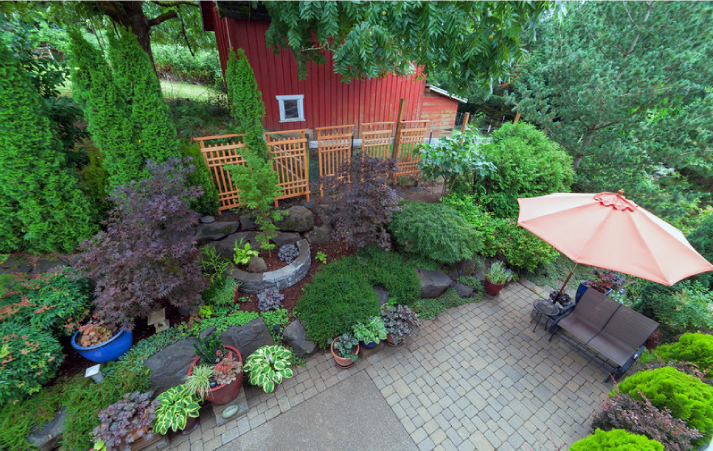When something is nearly ubiquitous, it’s easy to forget it’s there. Permeable interlocking concrete pavers (PICP) are one of those items. They’ve been around for thousands of years, but have become especially popular in recent years. They’ve certainly kept us busy here at Unit Paving Inc, as a growing number of homeowners, businesses, and cities turn to this old tech with a new twist. What’s behind that growing popularity?
Environmental Impact
The United States Geological Survey (USGS) cites a study by the Wisconsin Water Science Center that examines the impact of permeable pavers on the environment, especially in comparison with traditional paving methods. The results of the study were exactly what those of us in the industry would have expected: permeable pavers win hands-down when it comes to environmental impact.
That’s because in contrast with impervious surfaces, a PICP surface is specifically designed to sequester and filter wastewater and return it to the ground. When your landscape or streetscape uses an impervious surface like asphalt, the same wastewater is instead taxing sewer systems; if you’re a homeowner, meanwhile, that water could be pooling on your property, ruining your landscaping and attracting pests.
Sustainability
Of course, environmental concerns dovetail well with sustainability, the design and building methods designed to manage and mitigate environmental impact.
Sustainability addresses the finite nature of our water and material resources. For that reason, hardscaping is intended to return water to the soil rather than the sewer, and relies heavily on recycled and locally-sourced materials. Likewise, sustainable hardscaping like permeable pavers is also part of a wider strategy to preserve local soil and plant life.
Permeable pavers are a good fit here, since the construction method (whereby interlocking pavers are laid down in a grid over gravel, and using polymeric filler) lends itself naturally to erosion control, and limits or eliminates drainage concerns.
Heat Island Mitigation
In addition to its impermeability, blacktop has another significant problem: it absorbs and holds heat. Because permeable pavers are usually lighter in color, their reflective properties can have a light mitigating effect on the heat island phenomenon, whereby paved and overbuilt surfaces have a higher heat than the greener areas around them.
Expense
Interlocking pavers require less complex installation. Typically, the ground can be graded and compacted, a layer of rock or other porous material laid, and the pavers put down over that. By contrast, laying an impervious surface requires specialized equipment and is much more labor-intensive, which drives costs up.
Durability
The interlocking nature of permeable pavers affords an additional benefit: durability. A conventional asphalt driveway or concrete walkway can buckle or crack as the ground settles beneath it, or as tree roots grow beneath the surface. PICP, in contrast, already has a series of expansion joints built in, and rather than being a continuous slab is actually flexible, capable of adapting to topographical changes.
Aesthetics
Let’s be honest. An expanse of asphalt or concrete may be plenty practical, but in terms of looks, it’s about as interesting as watching paint dry. Choosing the right interlocking pavers isn’t just easier on the planet and your landscaping. It’s easy on the eyes.
Whether you’re a homeowner, commercial property manager, or city manager, the benefit of permeable pavers in your green portfolio is obvious. What can be less obvious is who to turn to for the hardscape design and paver installation to modernize your landscape. If you live in the Carolinas, that choice is much easier: simply contact Unit Paving Inc for a consultation and quote.

